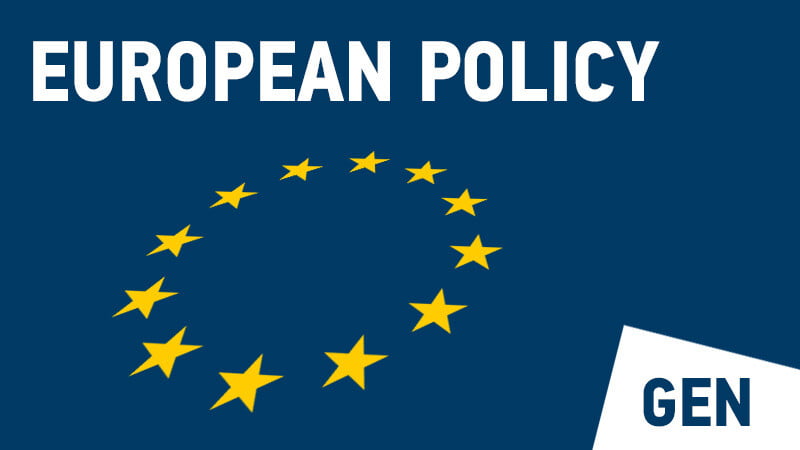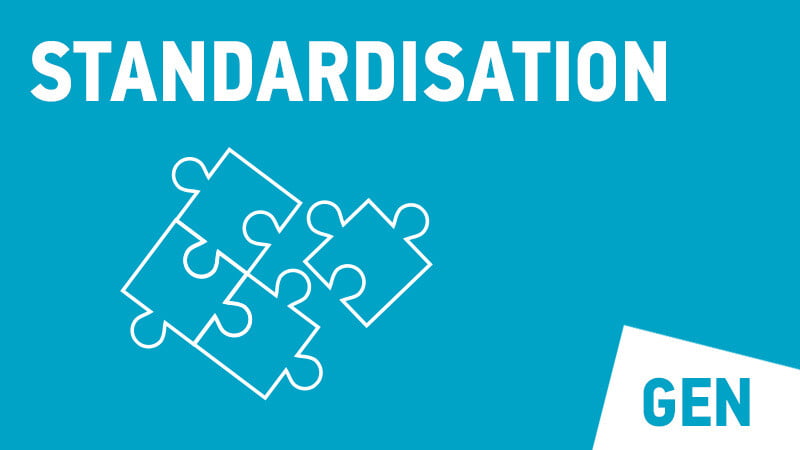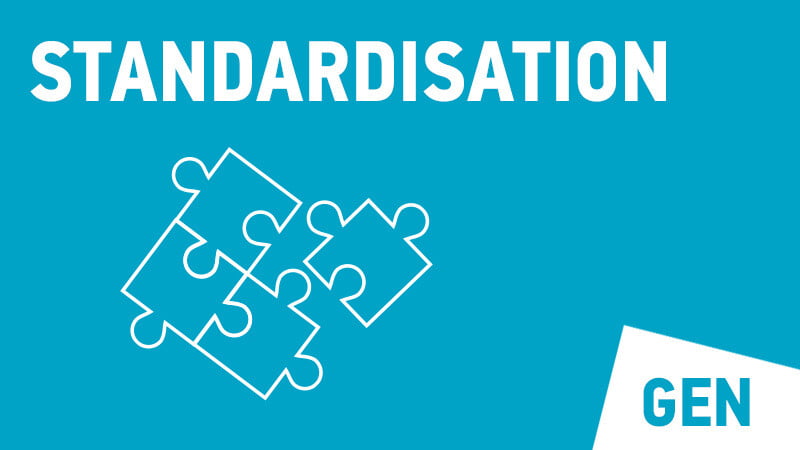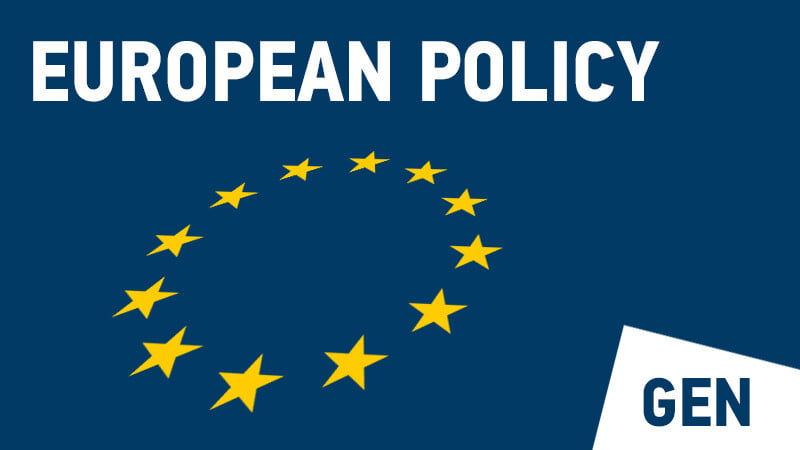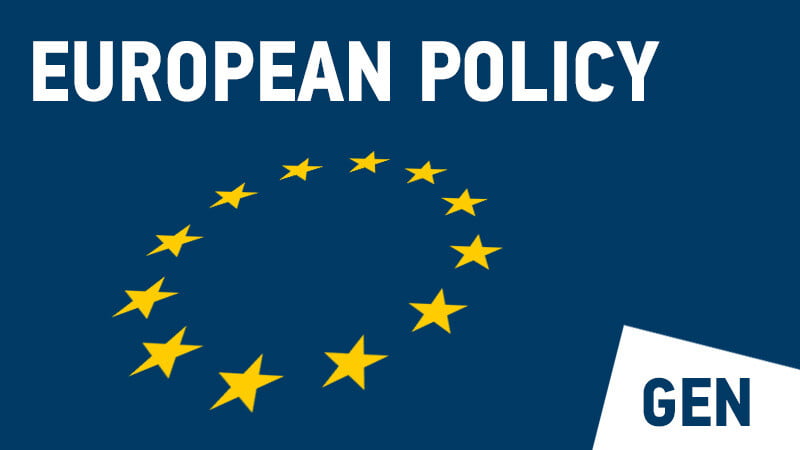GEN – 1438.00. The European Commission has published its Staff Working Document and the executive summary on the evaluation of the New Legislative Framework (NLF).
According to the findings of the evaluation study carried out by CSES (external consultant), the Commission concludes that the NLF has been both effective and efficient in achieving its four objectives:
- Reinforcing the New Approach
- Supporting the consistency and coherence of EU harmonisation legislation
- Strengthening the conformity assessment system
- Enhancing the clarity and credibility of the CE marking.
The study conducted by CSES however explains that, in terms of efficiency, the quantification of the NLF-related costs and benefits was often limited, so the data collected via interviews, targeted consultations and the workshop proved to be crucial to gather evidence. In general, the benefits of NLF (both monetary and non-monetary) strongly outweigh the costs.
Summary of the main conclusions according to each objective
1.Reinforcing the New Approach
The NLF is considered to have reinforced the technology-neutral approach throughout the EU product legislation, and as a result of the technology neutrality aspect, the NLF is well suited to cope with technical innovations. On the other hand, what could have a negative impact on innovation is the absence or delay in the adoption of harmonised standards. Also, industry stakeholders pointed out that the recent trend in some new proposals have to include more granular technical requirements in the legal text, which negatively impacts technology neutrality.
2.Supporting the consistency and coherence of EU harmonisation legislation
Coherence of the NLF directives and regulations but also between NLF-aligned legislation and non-NLF aligned legislation is considered strong, although some minor divergences have been identified for the latter. Some suggestions have been put forward to improve coherence and ensure consistency:
- Justifications for deviations in NLF legislation should be included in recitals of the product legislation
- A possible need to update and add definitions, as a result of market trends such as digitalisation and circular economy (to be further explored in a possible future impact assessment)
3.Strengthening the conformity assessment system
Generally, the existing conformity assessment and the menu of modules are still relevant. Also, an important achievement is the adoption and practical implementation of the legal framework for accreditation. However, the CSES study concluded that more needed to be done to ensure uniformity of conformity assessment services across the EU, including the non-mandatory nature of accreditation, as well as a more consistent application of existing rules on subcontracting.
To address this issue, it is suggested that a possible future impact assessment should consider looking at more precise rules to be set up to ensure a level-playing field for the Notified Bodies, including when outsourcing some substantial technical tasks. Moreover, in the context of changes brought by the digital and green transition (notably the trend of products modified, refurbished, and being placed on the market as new), the impact assessment should also explore a possible new NLF module that focuses on the validation and verification of products subject to substantial modification following their placing on the market/putting into service.
4.Enhancing the clarity and credibility of the CE marking
The NLF greatly contributed to enhancing the clarity and credibility of the CE marking, although there are consumer associations that believe there is room for improvement for awareness raising and clarification of the CE marking meaning among consumers. In terms of other obligations such as printing product information to accompany the product (e.g. instruction manual) many stakeholders find this requirement as more burdensome than affixing the CE marking. The Commission notes that digitalization can offer new opportunities to simplify administrative obligations on product information requirements. Therefore, the Opinion of the Fit for Future Platform (F4F) recommended that the Commission should carefully assess where and when product information and documentation can be provided digitally by default.
A possible NLF revision may consider the option of introducing a digital CE marking and a digital product passport (which could include an electronic Declaration of Conformity and the description of the conformity assessment procedure used). When it comes to instruction manuals accompanying the product, the Commission states that these can be alternatively provided in a digital format but supplied in a hard copy upon request, while safety information should always accompany the product in a paper format (except for intangible products, such as software), to ensure that all consumers can read them immediately upon unpacking the product.
It is also recommended that the NLF should in the future offer a general model for the product passport, to retain the NLF’s alignment function as well as a high level of coherence among difference pieces of product legislation. A possible future impact assessment may explore the possibility of building on the currently proposed EU digital passport model set out in the Proposal for a Regulation establishing a framework for setting Ecodesign requirements for sustainable products.
Conclusions
The Commission recalls the significant benefits of the NLF when it comes to effectiveness, efficiency, coherence, and EU added value. The only weaknesses identified are related to relevance, especially in the light of digitalisation and the circular economy objectives. It seems that the circular economy objectives may require a more dynamic notion of compliance and a mechanism to ensure that products are safe and compliant even if they are substantially modified following their placing on the market. Therefore, the Commission concludes that the general framework of the NLF may require some updates to deal with current and future needs and challenges, such as complex value chains, facilitating remanufacturing and high-quality recycling of products, as well as introducing digital product information (i.e. digital CE marking and digital product passport).
Recommended actions
Manufacturers and bodies active in conformity assessment (including certification) and concerned about market surveillance are recommended to carefully assess the outcomes of the evaluation.
Related documents and links
All related documents and articles can be found in the respective sections in the right sidebar.
- GEN – 1438.01 – Evaluation of the New Legislative Framework – Commission staff working document
- GEN – 1438.02 – Evaluation of the New Legislative Framework – Executive Summary
- GEN – 1330.00 – Public Consultation on New Legislative Framework (NLF)
- GEN – 1326.00 – Stakeholder involvement in European legislation
- GEN – 1322.00 – Update standardisation, notifications, European legislation
- GEN – 1267.00 – EUPCN work programme 2021-2022
- Public Consultation NLF: https://ec.europa.eu/info/law/better-regulation/have-your-say/initiatives/12654-Industrial-products-evaluation-of-the-new-legislative-framework_en
- CSES consultation NLF : https://s.chkmkt.com/?e=247142&h=C1AACB78C5458E9&l=en.
- NLF Commission website: https://ec.europa.eu/growth/single-market/goods/new-legislative-framework_en
- https://ec.europa.eu/growth/single-market/goods/building-blocks/market-surveillance/organisation/eu-product-compliance-network_en
- EUPCN website: https://ec.europa.eu/growth/single-market/goods/building-blocks/market-surveillance/organisation/eu-product-compliance-network_en
- EC market surveillance web page: http://ec.europa.eu/growth/single-market/goods/building-blocks/market-surveillance/organisation_en



